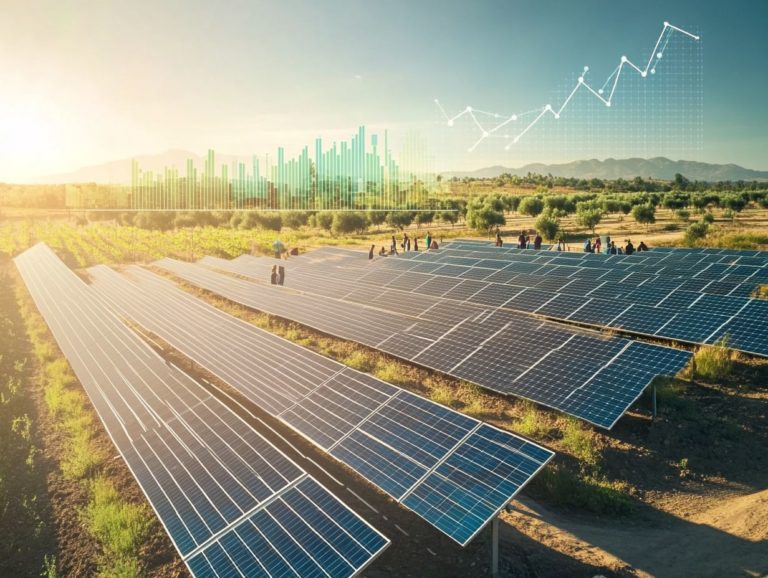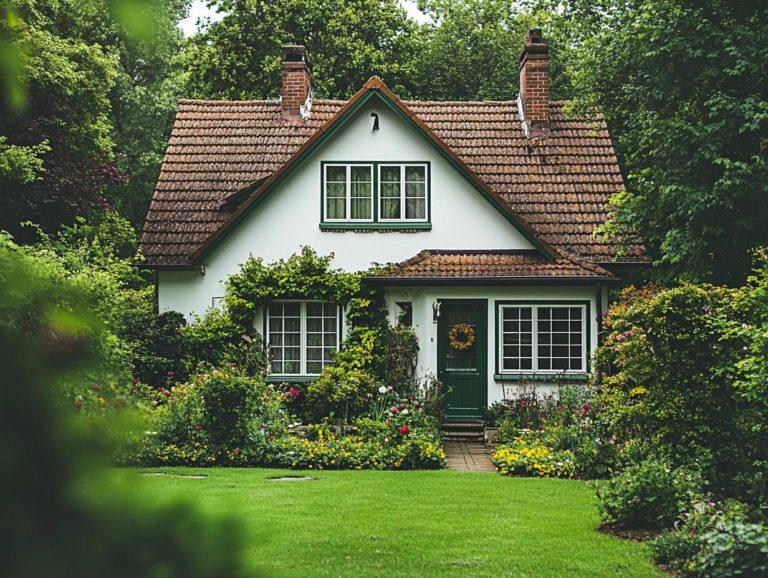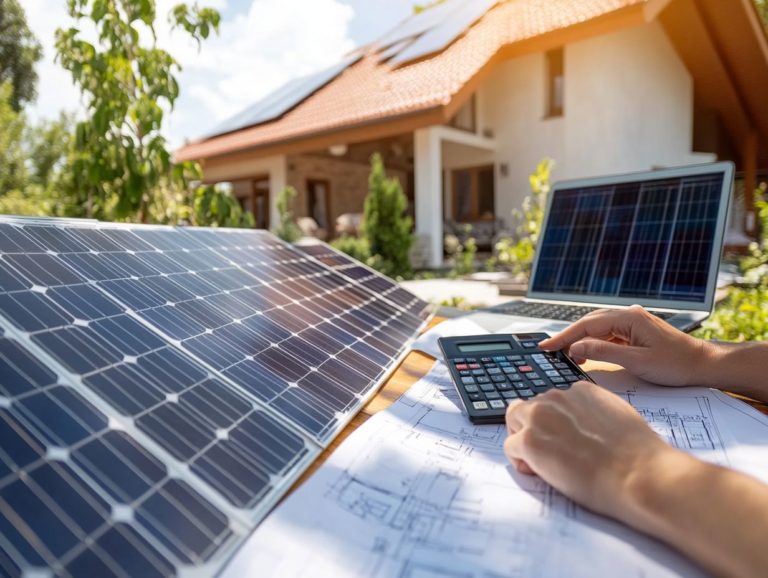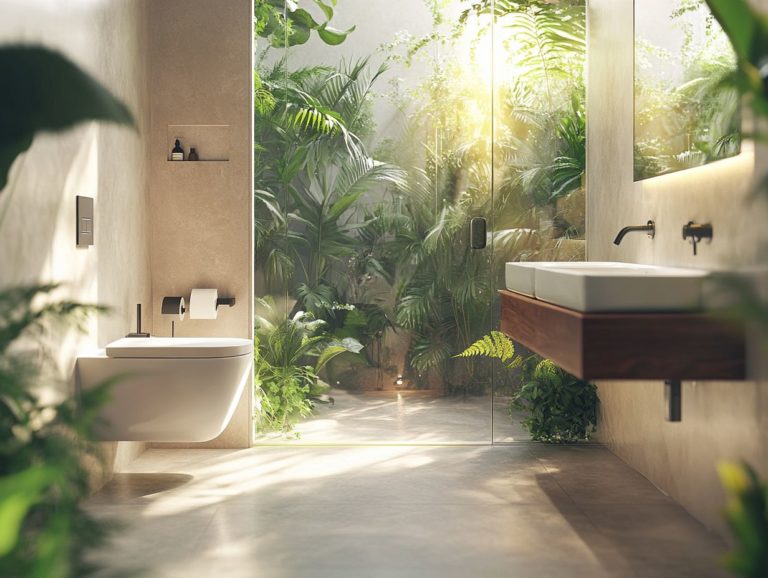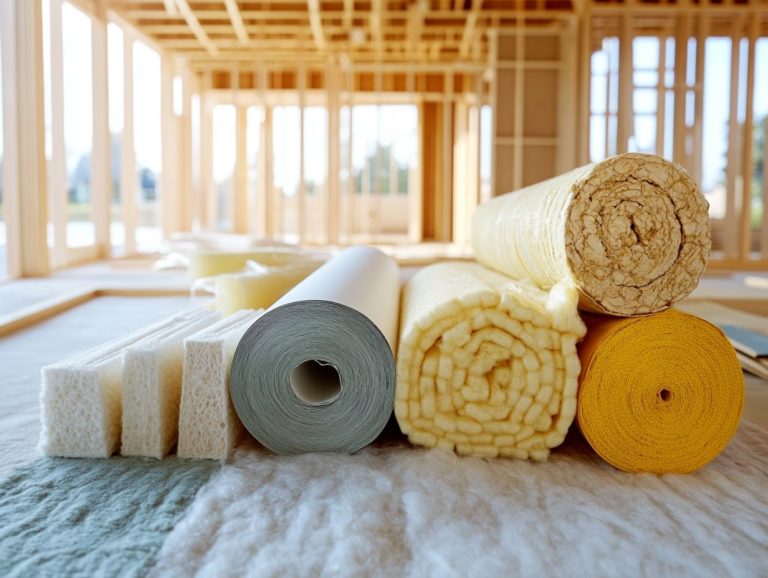How to Evaluate Water Conservation Systems?
In a world where water scarcity is becoming an urgent concern, recognizing the importance of water conservation is crucial for both you and your community.
This article delves into the pressing need for effective water-saving practices, showcases various conservation systems, and provides guidance on assessing their effectiveness, cost, and environmental impact.
Whether you re looking to lower your water bill or play a part in sustainability efforts, you ll find the right system tailored to your needs, along with valuable tips for successful implementation and maintenance.
Explore how simple changes can lead to a meaningful impact on water conservation.
Contents
- Key Takeaways:
- The Importance of Water Conservation
- Types of Water Conservation Systems
- Factors to Consider When Evaluating Water Conservation Systems
- How to Choose the Right Water Conservation System for Your Needs
- Implementing and Maintaining a Water Conservation System
- Frequently Asked Questions
- 1. What are some key features to consider when evaluating water conservation systems?
- 2. How can I determine the efficiency of a water conservation system?
- 3. Are there any certifications or standards that I should look for when evaluating a water conservation system?
- 4. How important is proper installation and maintenance for a water conservation system?
- 5. Can a water conservation system work for both residential and commercial properties?
- 6. What are some potential cost savings associated with implementing a water conservation system?
Key Takeaways:
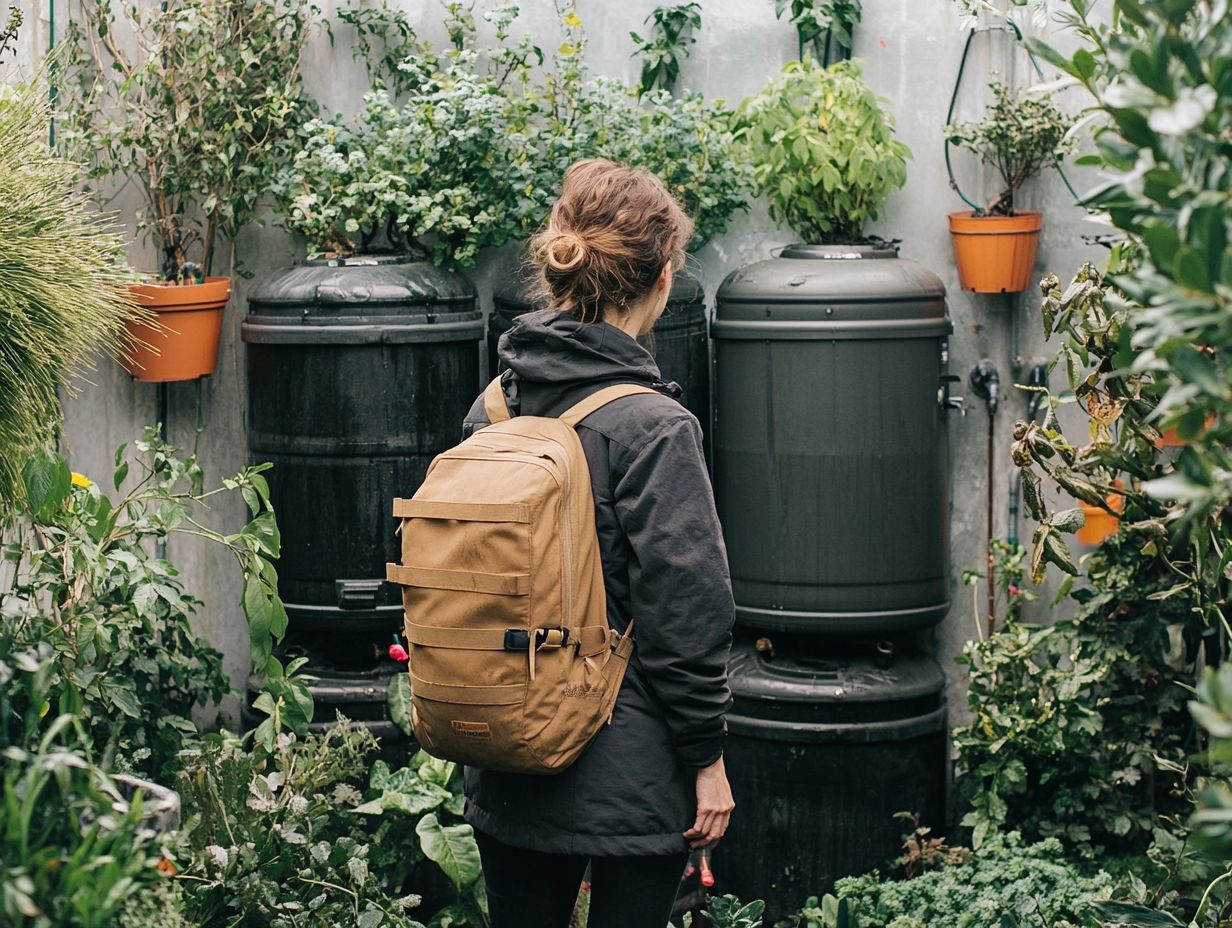
Conserving water is crucial for the environment and our future. Choosing the right system can make a huge difference for both you and your community. Different systems have varying costs, effectiveness, and environmental impacts. Consider your water usage, budget, and goals when choosing a system.
The Importance of Water Conservation
Water conservation stands as a vital cornerstone in addressing future water needs, especially in urban areas where pressure on drinking water resources and aquatic ecosystems continues to escalate.
By adopting effective water conservation strategies, you support eco-friendly building practices and bolster water resource planning efforts, helping to alleviate the negative environmental effects of water overuse.
Embracing a comprehensive approach to conservation activities can dramatically enhance water efficiency. This ultimately benefits both utility customers and the broader ecosystem.
Why We Need to Conserve Water
Conserving water is crucial for sustainable resource management, allowing you to balance future water demands with current usage patterns while unlocking significant savings.
In a world where urban populations are booming and agricultural needs are on the rise, effective management of this essential resource becomes paramount. Rising water treatment costs make it crucial to adopt conservation strategies now.
Conducting a thorough cost-benefit analysis will help you identify which conservation measures yield the best returns, guiding your investments in water-efficient solutions.
Using water-efficient products can lead to big benefits for your wallet and the environment.
Types of Water Conservation Systems
You have a range of sophisticated water conservation systems at your disposal, expertly crafted to optimize water usage and manage resources with precision.
These include practices such as water-efficient landscape management, measuring water usage for all properties, and new methods for using reclaimed wastewater.
Overview of Different Systems
Water conservation systems offer a variety of strategies, including proactive leak detection and effective water loss control measures. These approaches work alongside high-efficiency toilets and fixtures that dramatically lower water consumption.
These systems are designed to minimize waste and maximize efficiency, ensuring that every precious drop is utilized to its fullest potential.
When you consider implementation, it often involves retrofitting existing plumbing with advanced technologies that monitor usage patterns in real-time.
For instance, smart meters provide data that illuminates your water usage, enabling more informed choices.
By integrating conservation portfolios into water resource planning, municipalities can establish sustainable frameworks that encourage optimal water use while effectively addressing the challenges posed by drought and climate change.
These comprehensive approaches not only help safeguard essential water resources but also translate into significant financial savings for both households and communities.
Factors to Consider When Evaluating Water Conservation Systems
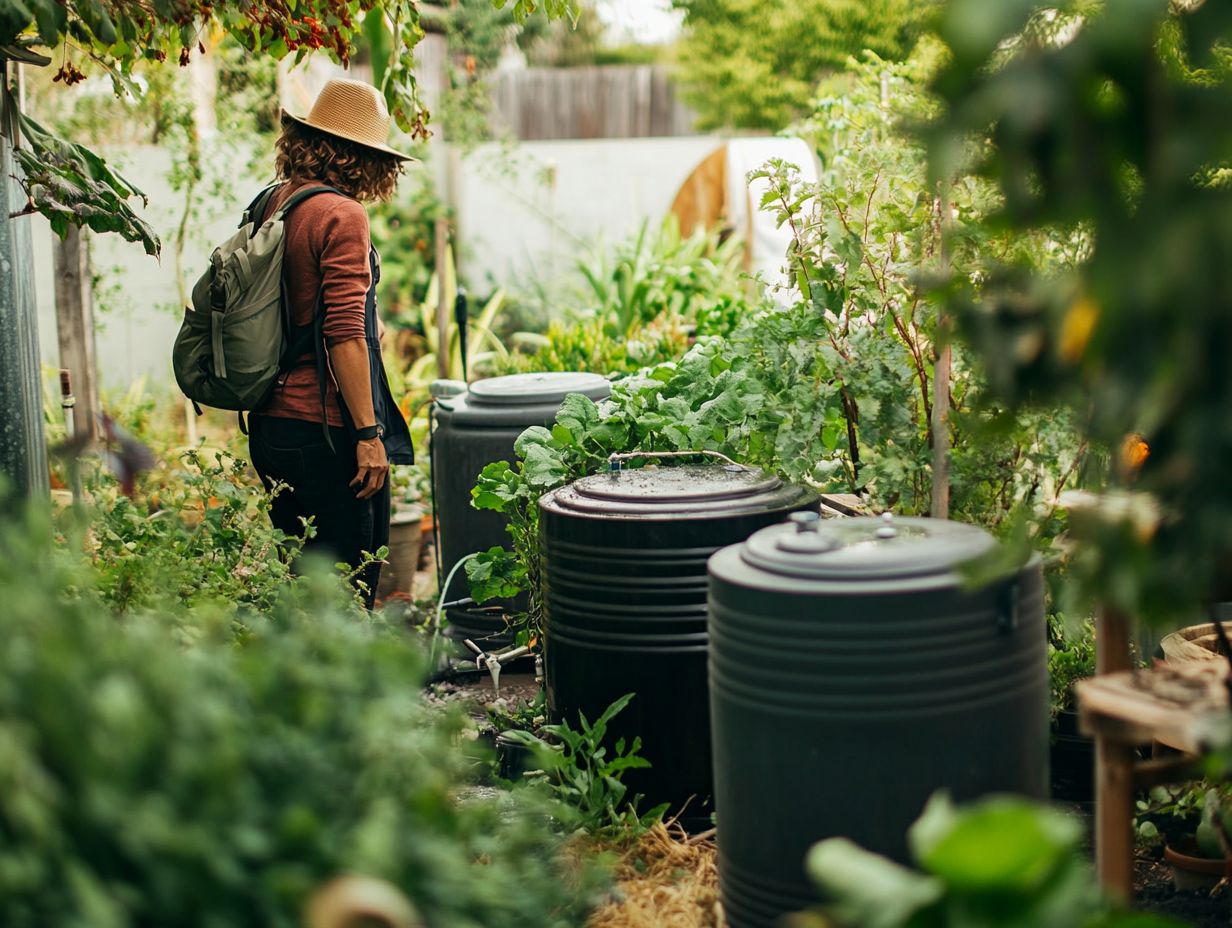
When evaluating water conservation systems, it s essential to consider several key factors.
Focus on the cost of implementation, the system’s effectiveness in achieving significant water savings, and the overall environmental impact on local ecosystems. Each of these elements plays a crucial role in determining the value and sustainability of your chosen solution.
Start your water conservation journey today and make a difference for our planet!
Cost
The cost of implementing water conservation systems is important. You need a clear cost-benefit analysis to see potential savings for utility customers.
Evaluate installation costs, maintenance expenses, and savings from lower water bills. This will help you understand how effective these systems can be.
Knowing the costs helps you compare different conservation measures. The goal is to encourage wider adoption of these systems.
When customers see the true value and savings, they are more likely to invest in solutions. These solutions optimize resources and enhance community sustainability.
Effectiveness
To evaluate water conservation systems, assess their ability to save water. Look for features like a water-loss module.
Measure effectiveness by checking water usage reduction and cost-effectiveness. These criteria help gauge the success of the technology.
For example, a municipality using smart irrigation saw a 30% decrease in water use. This shows the real benefits of conservation measures.
A university campus that installed rainwater harvesting systems reduced its reliance on municipal water. It also cut down stormwater runoff, showcasing the multi-faceted advantages of these systems.
Through careful analysis, you can understand how these strategies promote sustainable water management.
Environmental Impact
Water conservation systems significantly impact the environment. They affect both water quality and aquatic ecosystems.
These systems help reduce waste and maintain the balance of local habitats. However, some methods may unintentionally harm local plants and animals.
While they improve water retention, careless implementation can lead to contamination. Effective practices should always protect aquatic life and ecosystems.
The aim is to balance human needs with nature. By fostering biodiversity, we can sustain clean waterways.
How to Choose the Right Water Conservation System for Your Needs
Choosing the right water conservation system means assessing your water habits. You also need to understand your budget and long-term goals.
Evaluating Your Water Usage
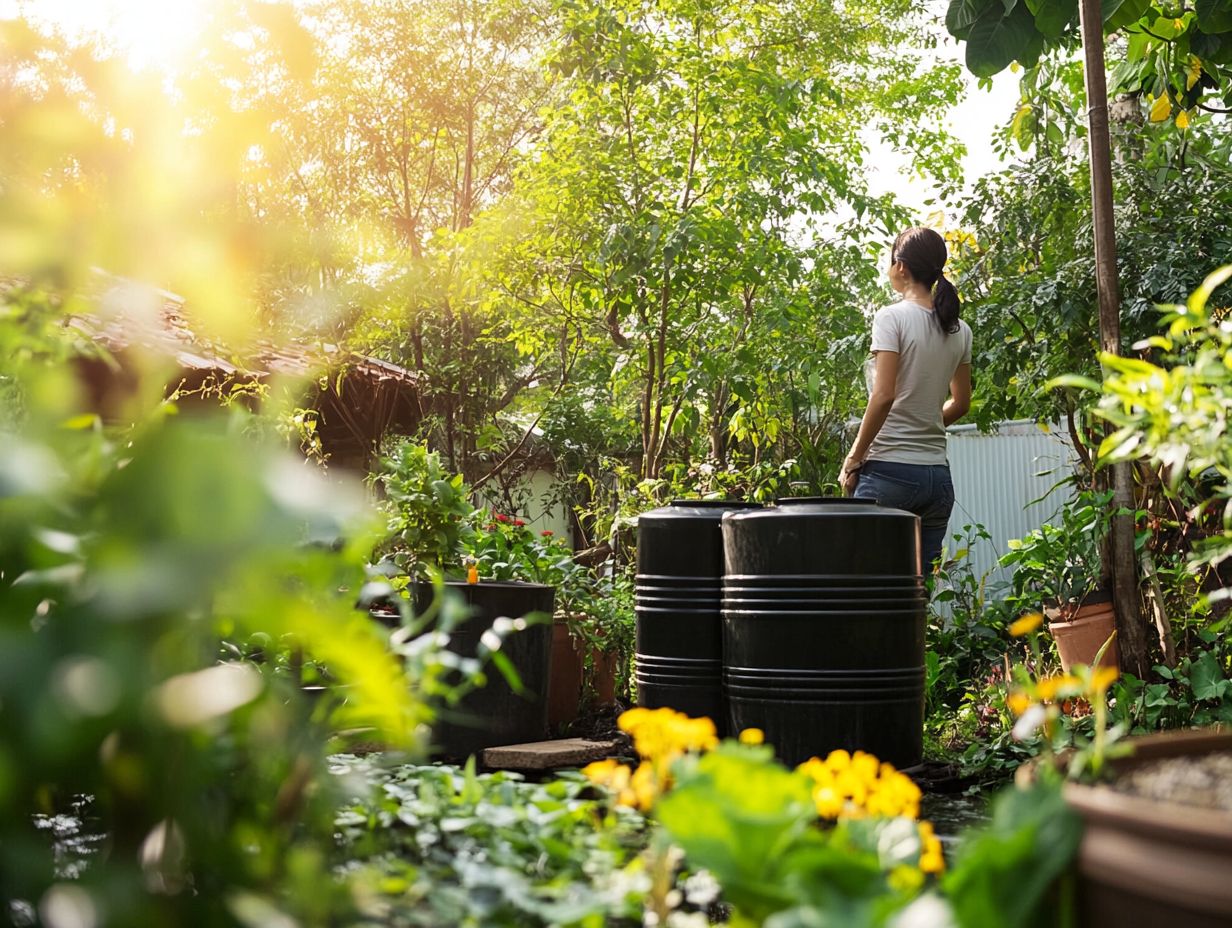
A water-use audit is essential for understanding your consumption patterns. It highlights opportunities for conservation.
Look into factors like appliance efficiency and plumbing leaks to see where you can improve. Recognizing peak usage will help you develop effective conservation strategies.
This process promotes responsible water management and can lower your bills. Incorporating these insights leads to a sustainable lifestyle for you and your community.
Considering Your Budget and Goals
When you are selecting a water conservation system, it is essential to weigh your budget alongside your specific conservation goals. This approach helps manage water resources sustainably.
Balancing these two factors might seem daunting, but there are several effective strategies to help you align your financial constraints with your water conservation objectives.
Look for financial help programs; numerous local and federal initiatives offer grants, low-interest loans, and tax incentives that can ease the upfront costs of implementing water-saving technologies.
Using conservation programs effectively helps you maximize funding and broaden your resource pool by connecting with initiatives focused on promoting sustainable practices.
Tapping into these resources enables you to create a financially feasible plan that meets both your conservation goals and budgetary limitations.
Implementing and Maintaining a Water Conservation System
Implementing and maintaining a water conservation system demands meticulous planning during installation, coupled with a steadfast commitment to uphold maintenance requirements.
This commitment is key to long-term water efficiency and maximizing the benefits of your system.
Installation Process
The installation process for water conservation systems is important, often requiring the expertise of a water efficiency coordinator to ensure you adhere to best practices and comply with conservation programs.
Proper planning is fundamental; it involves evaluating site conditions, understanding your water needs, and identifying the right technologies tailored to your specific landscape.
Following this, meticulous execution is vital, as accurate measurements and installation techniques can significantly influence the system’s performance and longevity.
Throughout this journey, the water efficiency coordinator plays a pivotal role, facilitating communication among stakeholders while offering insights into local regulations and incentives that could enhance your project’s viability.
Their expertise ensures that all essential components are seamlessly integrated, maximizing your potential for effective water conservation.
Maintenance Requirements
To sustain the effectiveness of your water conservation systems, it is crucial for you to grasp the maintenance requirements, especially when it comes to implementing active leak detection methods and securing financial help.
Regular inspections and timely repairs are key to keeping these systems operational while minimizing water waste.
You might face challenges in managing the costs tied to such maintenance, but leveraging financial help can significantly ease those burdens.
By capitalizing on available grants and funding programs, you can ensure that the necessary upkeep remains both affordable and effective.
Establishing a routine maintenance schedule not only extends the lifespan of your conservation systems but also fosters community engagement in water-saving initiatives, leading to a collective effort in preserving this vital resource.
Frequently Asked Questions
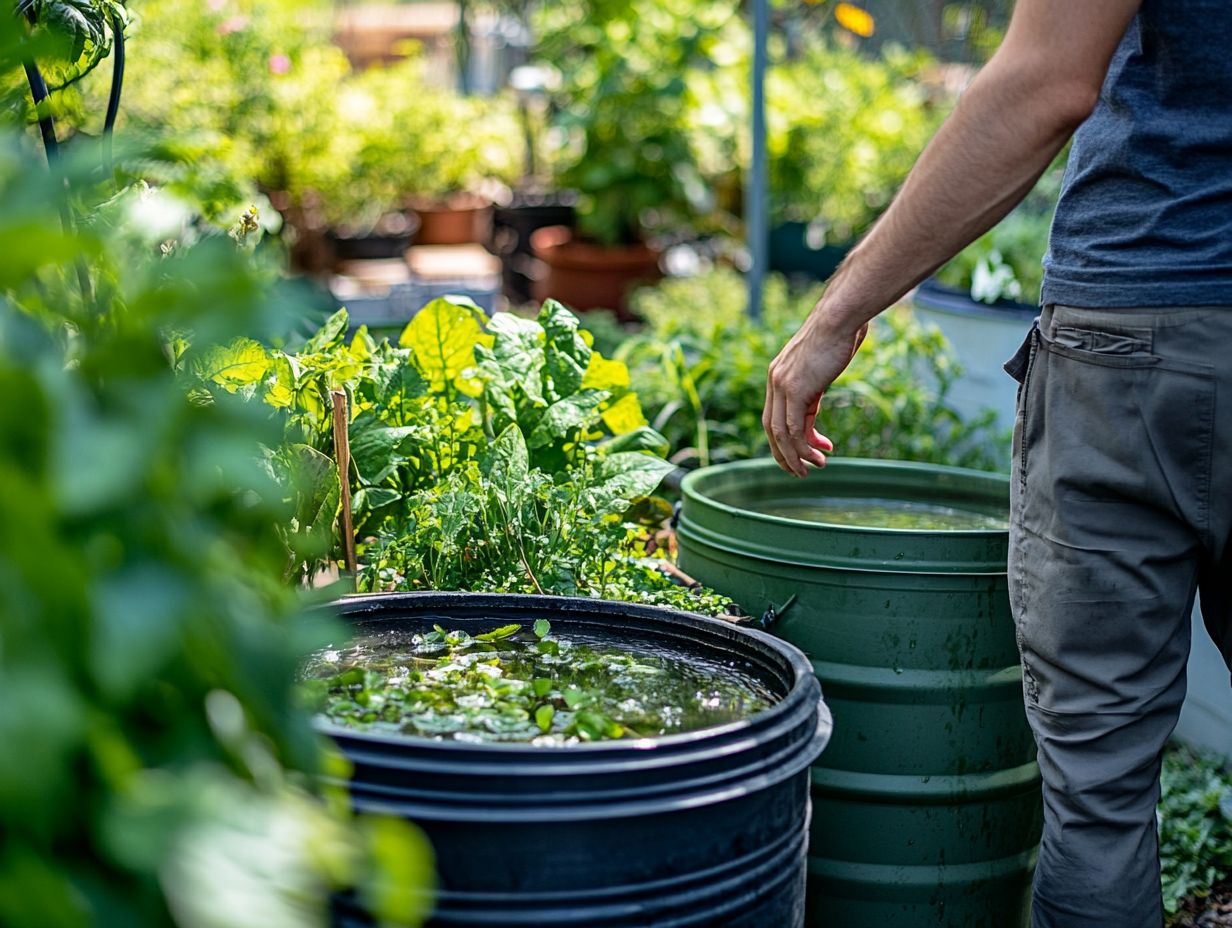
1. What are some key features to consider when evaluating water conservation systems?
When evaluating water conservation systems, it is important to consider factors such as the system’s efficiency, reliability, value for money, ease of maintenance, and compatibility with existing infrastructure.
2. How can I determine the efficiency of a water conservation system?
The efficiency of a water conservation system can be determined by calculating the amount of water saved compared to the amount of water used. This can be done by measuring water flow rates, monitoring usage data, or using specialized tools and software.
3. Are there any certifications or standards that I should look for when evaluating a water conservation system?
Yes, there are several certifications and standards that can indicate the effectiveness and reliability of a water conservation system. Some examples include the WaterSense label from the Environmental Protection Agency (EPA) and the LEED certification from the U.S. Green Building Council.
4. How important is proper installation and maintenance for a water conservation system?
Proper installation and ongoing maintenance are crucial for the success of a water conservation system. A poorly installed system can lead to leaks and costly repairs.
Neglecting maintenance can lead to system failures, making it less effective.
5. Can a water conservation system work for both residential and commercial properties?
Yes! Different types of water conservation systems can be tailored for residential and commercial properties. For homes, there are simple options like rain barrels and low-flow fixtures.
For larger buildings, you can use more complex systems that reuse water from sinks and showers or use targeted watering methods.
6. What are some potential cost savings associated with implementing a water conservation system?
Installing a water conservation system can save you a lot of money! You’ll see lower water bills, reduced repair costs, and possible tax incentives.
This system can also help you manage the financial effects of water shortages and droughts in the long run.

